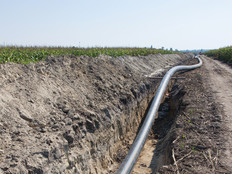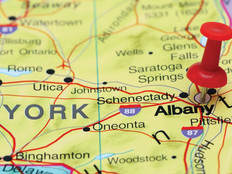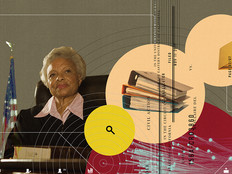States, Cities Trying to Preserve Net Neutrality Principles
The Federal Communications Commission's Dec. 14 decision to repeal net neutrality rules and hand broadband companies control of internet connections is shaping up to have some very real impacts for city governments and residents.
In a letter released Dec. 7, ahead of the decision, 68 mayors and elected officials argued that the decision to remove the internet protections is likely to widen the digital divide that many cities already grapple with as well as quell economic growth.
"This is a big step in the wrong direction, frankly, towards achieving [equality] in the digital environment," New York City Chief Technology Officer Miguel Gamiño, told Government Technology. "To draw an analogy to the physical world, we wouldn't tolerate the repeal of things directed toward creating equity and access in the physical space."
The ruling could also halt growth for small businesses, the letter argues.
"Internet access is critical for starting a new business, and the loss of net neutrality will disadvantage small business owners who can't afford additional fees to deliver their web content to customers," Jim Loter, Seattle's director of digital engagement, told Government Technology.
The letter also notes that the decision could violate local control as it also prevents local governments from imposing their own net neutrality rules.
"The commission's proposal seeks to compound its prioritization of the broadband industry above all others, and above local communities, by broadly pre-empting state and local government ability to respond to the unique challenges faced in our communities," the Dec. 7 letter reads.
Despite these provisions, several cities and states have found ways to push back against the possible negative side effects of the net neutrality repeal via IT contracts, data, municipal internet and more.
SIGN UP: Get more news from the StateTech newsletter in your inbox every two weeks!
State IT Contracts Seek to Preserve Net Neutrality
While New York state can't impose its own net neutrality rules, state leaders are blocking business with any vendors that don't treat all internet traffic equally. This is according to a new executive order signed by New York Governor Andrew M. Cuomo on Jan. 24.
"The FCC's dangerous ruling goes against the core values of our democracy, and New York will do everything in our power to protect net neutrality and the free exchange of ideas," Cuomo said in a statement that accompanied the order. "With this executive order, we reaffirm our commitment to freedom and democracy and help ensure that the internet remains free and open to all."
In Montana, Governor Steve Bullock signed a similar order just two days prior, requiring those that enter into contracts with the state to adhere to the principals of net neutrality.
"When the FCC repealed its net neutrality rules, it said consumers should choose. The State of Montana is one of the biggest consumers of internet services in our state. Today we're making our choice clear: we want net neutrality," Bullock said in a statement. "It's good government, and our citizens who use online services rely on it."
Meanwhile, California, Massachusetts and Nebraska have released similar bills that seek to reinstate the states' commitments to net neutrality.
Municipal Internet Offers Cities the Options to Stay Equitable
One way that cities are seeking to stay in control of networks is through city-owned broadband options. Several cities, such as San Francisco, are already in pursuit of citywide municipal networks. Now, as part of the procurement process for the affordable fiber network that will blanket the city, the city has asked that its vendor partners enable a neutral network in its Request for Qualifications.
"We will provide an alternative [internet option for residents] that favors the general public and San Francisco values, not corporate interests," Interim Mayor Mark Farrell said in a press release.
Fort Collins, Colo., is also pursuing city-owned internet with the help of a municipal broadband utility called NextLight, which assures customers that the offering will remain equitable despite the FCC's recent repeal.
"Municipal networks will be an excellent way to reclaim your privacy as well as net neutrality," Glen Akins, who helped lead the Fort Collins Citizen Broadband Committee, told Government Technology. "The large internet companies are willing to sell your data and throttle, block and sell fast lanes. With a municipal network, there's no financial reason for the city to sell your info or to block other people."
Data Visualization Could Keep Connectivity Neutral
Maintaining fast internet speeds can be critical to success for students in low-income areas, argues Amen Ra Mashariki, a fellow at the Harvard Ash Center for Democratic Governance and Innovation and urban analytics lead for geographic information system (GIS) company Esri.
"If you start from the concept that access equals success, broadband access can make a huge difference," says Mashariki in an article on Data-Smart City Solutions, pointing to students in schools in underserved communities. "Schools that rely on broadband access will have trouble if the speed of access is throttled." This creates issues outside of school walls as well, as students would struggle to complete homework or participate in activities that require internet connections.
If neutrality isn't guaranteed, using data visualization tools, such as GIS, can help governments keep an eye on internet speeds to ensure that those in underserved and low-income communities are receiving the connection speeds necessary to participate in education and economy.
Mashariki calls for local governments to ensure that "if the rules are rolled back, there's a critical level of transparency. This involves actively and aggressively identifying sources of data that can be used to track internet speeds."
To achieve this, he says cities should invest in "online tools that residents can visit and contribute to via multiple channels."
He also calls for government leaders at all levels to speak with each other and their communities to make sure they are tapping all data sources possible to create a picture of connection and speeds throughout their jurisdictions.
"We need to bring cities together to talk about what data is available on the federal, state and local levels," Mashariki tells Data-Smart City Solutions.









